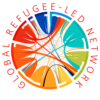
16 February 2023
As of today, the 7.8 magnitude earthquake and aftershocks that struck Türkiye and Syria have killed over 40,000 people, injured tens of thousands, and left even more homeless. Having lived and worked in Gazientep for many years, I am devastated by the tragic loss of life and the destruction of a place I used to call home and its surroundings. Along with my colleagues at the Global Refugee-led Network (GRN), we stand with all those affected by this tragedy and mourn the lives lost.
Many Syrian refugees in our Network also call Gazientep home. A majority of the total 4 million Syrian refugees residing in Türkiye live in Gazientep. Tragically, many of the provinces in Türkiye hit hardest by the earthquakes host large refugee populations. Some of these refugees have experienced displacement as many as 20 times because of the decade-long conflict in Syria.
In Syria, the earthquake has caused a crisis to unfold within a crisis. More than 4,000 people have now been reported dead in the country and UNHCR has preliminarily estimated that 5.3 million people there will require assistance. Yet aid agencies are struggling to respond to the crisis. Vital infrastructure in Syria was already unstable due to the ongoing conflict – even before the earthquakes, only 40% of hospitals were functional, and more than 2 million people required shelter assistance. Now, the earthquakes have also cut off energy access to many impacted areas. Humanitarian assistance is particularly slow to reach Northwest Syria; critical aid deliveries face roadblocks and already-shorthanded rescue workers often have to halt operations due to security concerns. All of that means thousands of people, including many children and the elderly, will face a harsh, sub-zero winter without shelter, electricity, heat, clean water, or adequate sanitation.
The people of Türkiye and Syria dealing with the painful aftermath of the earthquakes will need a sustained and comprehensive humanitarian response across affected areas as the situation develops from immediate life-saving activities to rebuilding efforts over the next few months.
Some of the most critical needs of the impacted individuals are:
- Basic needs – food, water, core relief items, winterization assistance (including winter clothing), medicine, and hygiene and sanitation assistance;
- Shelter assistance – the freezing temperatures are forcing people back into structures that are at risk of collapsing; shelter is also particularly important for women and children who are vulnerable to further abuse and exploitation if they are constantly displaced. This also includes providing temporary accommodation (3 months) for families in close regions and cities, such as Aleppo, Idleb, Latakkia and Gazientep;
- Health services for women – including hygiene items, maternity kits for mothers and babies, and reproductive health services;
- Psychosocial support – particularly for children experiencing profound trauma;
- Legal support to help provide internally displaced people who do not have documentation;
- Community and livelihood rebuilding in the longer run especially for refugees who already face resettlement challenges in their new communities.
Furthermore, the most urgent of these responses should be targeted towards the communities that are most at-risk, such as those with serious medical cases and women and children.
Local organizations, aid agencies and refugee-led initiatives are the first to respond and are best placed to understand the needs on the ground. They also occupy an important role in facilitating rescue efforts within a conflict zone in Syria where access to aid is stymied by complex political dynamics. To bridge funding gaps and support those local efforts as they continue to mobilize, please consider donating to these groups, many of which were compiled by Asylum Access and The Resourcing Refugee Leadership Initiative (RRLI):
The Global Refugee-led Network commends these organizations for all of the important work they are doing and stands in solidarity with all of those affected by the earthquake.
In solidarity,
Amer
Chair, Global Refuge-led Network (GRN)
REFUGEES ACROSS THE MENA REGION GOT CONNECTED AND SHARED THE INTEREST TO JOIN grn NETWORK TO UNIT THEIR VOICES personal stories and experiences
MENA REGION HELD THE FIRST REFUGEES SUMMIT IN Istanbul, Turkey in November 2019. WHERE 35 Participants FROM 10 COUNTRIES.The refugees across the region got connected and share personal stories and experiences.
The objectives of the MENA Summit of Refugees are to:
- Discuss and agree the creation of a refugee-led network in the MENA region, as a platform for refugees to share lived experiences, organize, identify common ground amongst themselves and participate in the policy- and decision-making processes that affect them;
- Agree on the purpose and focus of the MENA region refugee-led network
- Establishment of a committee for follow up of the summit outcomes and to prepare for the a second summit for the establishment of a MENA chapter of the GRLN.
MENA’S ACTION PLAN IN RESPONSE TO COVID-19
- Being part of a consortium of RLOs in response to the Covid-19 in the saharawi refugee camps.
- Awareness actions on the covid-19 and prevention measures.
- Planning to have a conference on refugee leadership and the covid-19 in the MENA region in the next weeks.

